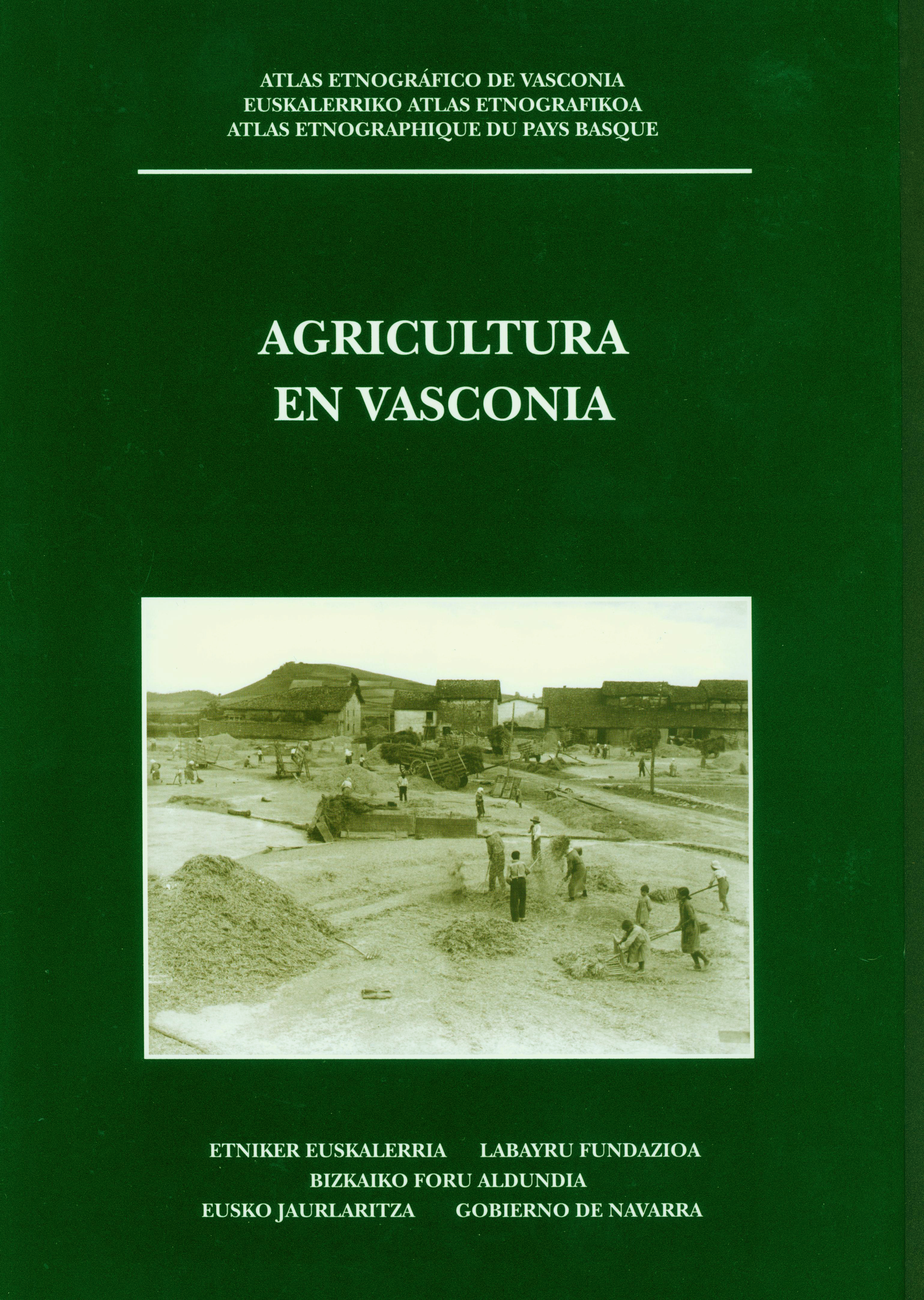Basque ethnography at a glance

Cover of the work Agriculture, only recently published (2017) eighth volume of the Ethnographic Atlas of the Basque Country.
Intensive, industrial crop and livestock farming provide food for an elite part of the population today. They are a minority who have allowed themselves to turn their backs on the rural world, except to engage in sports and leisure activities or build a second house, and more, they have decided to eat the inedible. Both sectors have become entrepreneurial undertakings that do not produce food but raw materials from which processed products still called food by tradition or as a mere euphemism are manufactured through complex industrial processes and offered in vast visual displays on supermarket shelves. Such farming methods require large energy inputs and are major contributors to climate change for their high greenhouse-gas emissions.
In contrast to productive modern enterprises and the ever more sophisticated technology, traditional agriculture and livestock farming cater for the majority of the population using old procedures (now considered obsolete) usually unnoticed in modernity, as are those who implement them or live off foods obtained through these means.
As a response to the pressing challenge of climate change, and in a headlong rush towards yet more development so characteristic of our civilization, a new concept is being introduced, namely climate-smart agriculture.
In the face of much modernity, the last volume of the Ethnographic Atlas of the Basque Country accounts for a very ancient practice carried out when land was cleared for first-time cultivation or spontaneous vegetation cover slashed so the plot could be farmed. It bore similarities with charcoal-making techniques. Vegetable waste was piled up and covered with sod and soil, and then it was made to burn slowly. Under these conditions, instead of a complete combustion of the carbon in the plants and subsequent oxidation to form carbon dioxide, leaving nothing but ashes, a carbonization process took place whereby substantial amounts of carbon would not volatilize and served as nutrient for agricultural soils, thus reducing the emission of such a harmful gas for climate stability.
A “backward” people, from our current perspective, our ancestors actually developed techniques that were both harmless to Nature and compatible with their interests, for they converted apparently non-renewable waste into fertilizer, all without much R&D&I.
Luis Manuel Peña – Ethnography Department – Labayru Fundazioa
Translated by Jaione Bilbao – Language Department – Labayru Fundazioa
Reference for further information: Agriculture, part of the Ethnographic Atlas of the Basque Country collection.

